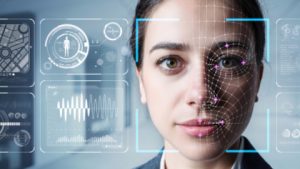Source – https://techstory.in/
Artificial Intelligence is widening its reach to different strata of our life. From the personalized ads to health care facilities, the presence of AI is felt everywhere. Therefore, it is only imperative that we have a thorough understanding of a technology that is growing to become a major part of our lives. This underscores the necessity to be well-versed in the ethics of artificial intelligence, the relevance of which is unquestionable.
What are Ethics?
Ethics of AI refers to those values and principles that act as a torch while we traverse through the hazy paths of advancing technologies like machine translation, facial recognition, or streaming services that run on recommendation algorithms. According to Anna-Mari Rusanen(University lecturer, cognitive science, University of Helsinki), the need for AI literacy becomes all the more important considering the fact that “we are all already parts of various AI systems, and they are developing rapidly.”
As the impact, artificial intelligence has on us is on the rise, it is important to have clarity about what we are dealing with and the ethical questions that come with it.
1. Identification Of Technology
It is important to make a distinction between the aspects of technology that requires reaction and response. Artificial intelligence is a part of even minute segments of our life. It is present wherever there is a requirement of efficiency and accuracy to manage monumental amounts of data. The field of health care is being taken up a notch by the technology that is capable of detecting even the most subtle flaws or errors that will miss the human eye. While on the defense landscape, speculations and discussions are on the table regarding the competence and capability of artificial intelligence in combat. The part it plays on social media platforms is evident without special mention.
This is where we must draw a line between risks and benefits, the inherent risks that can often lead to violation of privacy or human rights. We must be wise and knowledgeable to understand when the technology violates the line of control of privacy and interferes with the inner chambers of our lives.
Technology as we already know is not inherently good or bad. It is about how we use it and for what purpose. Therefore, as users, it is our responsibility to be on guard and ensure that technology doesn’t break the ethical walls in a bid to spread its branches all over the world and our world.
2. The Changing Ethics
Artificial intelligence is a technology with immense scope and possibilities. When the AI filter is added to any field, it enhances the clarity of functions, boosting it to progress and grow. However, it is also necessary to decide what kind of technologies must be used and to ensure that the technologies chosen are in sync with human rights and principles. A new solution can even be a deciding factor in the relationship between a state and its citizen.
According to Rusanen,
“Politicians and the people creating actual AI solutions must consider surprisingly profound questions regarding things like the nature of the default citizen around whom AI-based public services are organized.”
The draft on AI regulations to be released by the EU is proof that politicians have realized this important factor. These regulations will give a clear list of what can be done and what cannot be done using the technology with a firm emphasis on human rights. A clear line of distinction will be drawn between what is useful and what is abusive thereby placing AI within a suitable ethical framework.
3.Ethics Are Not Mere Icing On The Cake
It is important for organizations to realize that ethics is not just namesake signing off a document at the end of a deal. Rather they are concrete frameworks that must be in place. Companies must have a clear picture regarding how AI-centered technologies they use will impact the customers.
In the words of Rusanen,
“Developers must think about to whom their product or service is relevant, how the rights of these people are protected, and what consequences they may face. Everyone working with artificial intelligence must acknowledge what the ethical principles actually mean for their daily work. This must be done at each design meeting and it must guide the process from its very beginning. It’s not enough for an ethical advisor to sign off on the end result.”
